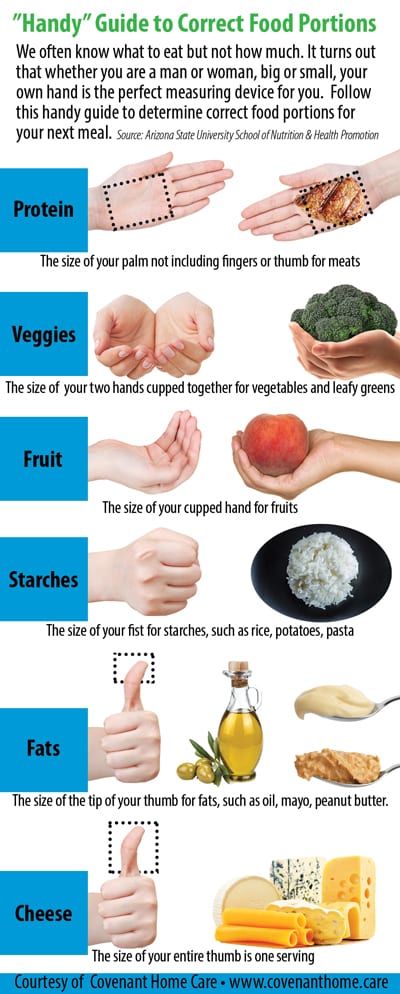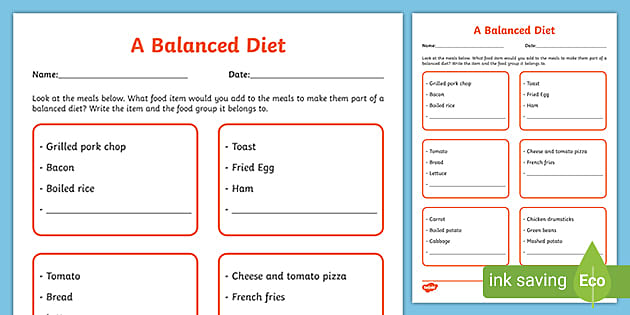
Women should be following proven strategies and avoiding common mistakes in order to stay healthy. These include regular medical checks, healthy eating and exercise. HealthifyMe has 12 health tips for women to help them live longer and remain healthy. These tips are based upon personal experiences and can be applied to your health. These health tips are hoped to be of use to you. For more information, please continue reading. They might also be of use to you.
Exercise
Women should exercise regularly to relieve stress and improve their overall health. Women are often too busy with the demands of paid work, child rearing, and household duties to find the time to exercise. However, even a 10-minute session of exercise can provide the same health benefits that a longer workout. Many home-based exercises can be done even if you don’t have the time for a 30-minute exercise session.
Healthy eating
A balanced diet for women will include healthy foods like fruits and veggies, lean protein, low-fat dairy products, as well as lean protein. Women should eat a wide variety of fruits and vegetables, but avoid processed foods. Lean cuts of chicken and beef are best for women when it comes to protein sources. These meats provide significant amounts of high quality protein. Women require different amounts of protein in different stages of life.

Stress management
Many experts recommend that women adopt a healthy lifestyle and manage stress. These include healthy eating, regular exercise and a positive attitude. Talk to your doctor if you are struggling with stress. It is crucial to take good care of yourself at all levels. Stress can cause many problems in your body and mind. It's possible to feel like you are drowning in stress.
Regular medical screenings
Women should have regular medical screenings. However, it is possible to prevent some diseases. A majority of American adults have high levels of cholesterol. This can increase their chances of suffering from stroke or heart disease. If you have a family history, it's important that you talk to your doctor. High blood pressure is another common risk, often called a silent killer.
Maintaining a healthy body weight
The key to overall health and wellbeing is managing a woman’s weight. For a healthy weight, eating well and getting enough exercise is key. Excessive weight can negatively impact almost all aspects of a person’s health, including their reproductive, pulmonary, cognition and mood. An overweight and obese woman is at greater risk for a host of diseases, such as heart disease and diabetes.

Get enough rest
Your health is dependent on your ability to get enough sleep. Adults require seven to eight hours of sleep every night. Yet, about a third of Americans do not get enough sleep. Although both men and women have similar sleep problems, the majority of women suffer from more. In addition, women experience more physical and emotional consequences from inadequate sleep than do men. National Women's Health Week runs May 10-16. Women should get enough sleep to be a top priority in their health.
FAQ
What can I do if I have mental health problems?
When you have any kind of mental health problem, it's important to seek treatment. It is possible that you have been subject to abuse or trauma in the past. This could have affected your perception of yourself.
You may also be suffering from an eating disorder, addiction, or another type of mental illness. These types of disorders can cause severe damage to your life.
It is best to not try to solve them all by yourself. You should speak to someone who understands what you're going through. Professional therapists can help you overcome these obstacles.
Why is mental well-being important?
Everyone's mental health is important. You can't do anything else if you aren't mentally well. It is important to have a healthy mind.
When our minds aren't in the best place, our bodies start to show signs and symptoms of stress. This can cause physical problems such headaches, stomachaches, backaches, or other symptoms. We must take care of ourselves to keep our minds and bodies balanced.
Why is it so important that we improve our emotional health
Happiness and well-being are dependent on emotional health. You won't be able perform at your best if you aren't emotionally healthy. People with depression are often unable to work efficiently. People with depression may also have anxiety, panic attacks and insomnia. The good news is that these conditions can be treated successfully with medication and therapy.
What is Positive Psychology, and Why is It Important?
Positive psychology emphasizes what makes us feel good about ourselves. This includes happiness, optimism, gratitude and hope. The goal of positive psychology is to help individuals become happier, healthier, and wiser through self-improvement.
There are two types if positive psychology: trait-positive psychology and process-positive psychology. Trait positive psychology examines how people behave naturally. The process of positive psychology studies how to use specific strategies to achieve certain goals.
How can you improve your wellbeing?
The state of being well is defined as the "state of physical, mental and spiritual well-being." Several factors affect our well-being, such as family, work, health, relationships, community, environment, education, finances, etc. Your first step in improving well-being and your quality of life is to identify which areas need improvement. Then, work on changing these things.
Here are five easy ways to improve your wellbeing
-
Exercise - Exercising makes you happier.
-
Sleep – A longer sleep time reduces stress and anxiety.
-
Nutrition - Healthy eating (such as fruits, vegetables and meats) can improve your mood.
-
Meditation - Regular meditation reduces stress and anxiety.
-
Socialization – Spending time with family and friends makes us feel happy.
How can I prevent my mental health problems from happening?
Preventing mental health issues is easier said than done. Here are some things to keep in your mind.
-
Don't drink alcohol. Alcohol can affect your moods and increase your risk of depression.
-
Avoid drugs. Avoid using drugs.
-
Get enough sleep. You can feel anxious or depressed if you don't get enough sleep.
-
Exercise regularly. Exercise is good for your mood and makes you feel happier.
-
Consume healthy food. You can feel tired and unmotivated if you eat junk food.
-
Spend time with your loved ones. Spending quality time with the people you love can lift your mood.
-
Have fun! Enjoy your life and be open to new experiences.
-
It is important to take breaks from social networking. Social media can make you feel isolated and lonely.
-
Take care of yourself. Treat yourself nicely, even if you aren't feeling great.
-
Ask for help. Ask for help if it's difficult to cope. Talking with a friend or family member is a great way to get help.
-
It's okay for you to cry. Crying helps to relieve tension and stress. It doesn’t mean something bad happened.
-
Keep busy. Do something that you love.
-
Maintain good hygiene. A lack of hygiene can make you look unattractive and unclean.
-
Stay connected. Staying connected will help you stay positive.
-
Learn how relax. You can relax by using relaxation techniques such as yoga or meditation to help you manage stress.
-
Find meaning in what your do. Finding meaning in your hobbies or work can help you feel fulfilled.
-
Focus on the present moment. Focusing on the present moment will allow you to stop worrying about the future.
-
Set goals. It can be motivating to set goals.
-
Do something nice to yourself. Doing something nice for yourself can boost your self-esteem.
-
Practice gratitude. Gratitude is a way to be grateful for all the good in your daily life.
-
Volunteer. Volunteering is an enjoyable way of spending time and making a difference in this world.
-
Give back. Giving back to others is a way to feel fulfilled.
-
Watch out for warning signs. If you notice any changes in your behavior, don't hesitate to reach out for help.
What are some signs of mental-emotional difficulties?
Mental disorders include any condition that causes significant distress or impairment in functioning. Some examples of mental disorder include anxiety, depression, schizophrenia.
Statistics
- It does have some influence, but not nearly as much as we might think, so focusing less on attaining wealth will likely make you happier (Aknin, Norton, & Dunn, 2009); (positivepsychology.com)
- In any given year, an estimated 18.1% (43.6 million) of U.S. adults ages 18 years or older suffered from any mental illness, and 4.2% (9.8 million) (healthypeople.gov)
- It means no drinking any alcoholic beverages and no taking any drugs that aren't 100% natural.
- More than 40 million adults in the United States have an anxiety disorder, but less than 37% of people seek mental health treatment for their symptoms. (talkspace.com)
- Neuropsychiatric diseases are the leading cause of death and disability in the U.S., accounting for 18.7 percent of all years of potential lifespan loss and premature mortality.
External Links
How To
What are the Key Factors that Make Mental Health Vital?
Mental health refers to the state of your mind and emotional well-being. It affects how you feel, think, act, relate to others, sleep, eat, work, learn, play, and enjoy life.
Mental health is an important topic for everyone. Mental health is often associated with depression. Depression is a serious illness that strikes millions of Americans each and every year.
Because it requires medical intervention, depression is sometimes called clinical depression. However, there are many types of depression, including milder forms that do not require medical intervention.
According to the National Institute of Mental Health, depression is "a common mood disorder that causes depression most of the time, a loss of interest in nearly all activities, feelings of guilt, low self-worth, disturbed sleep, appetite, poor concentration, thoughts of suicide or death."
There are many ways that people experience depression. Others may feel helpless, sad, hopeless and unmotivated. Others may feel depressed, anxious, restless, agitated or fearful. Others might feel nothing.
Depression can be managed. Depression can be treated with medication, psychotherapy, exercise and diet modifications. If left untreated depression can cause severe problems at work, home, and in relationships.
Depression is more common for women than for men, though it can also affect boys and girls. Depression is the number one cause of disability in the world for women and men between the ages of 15 and 44.